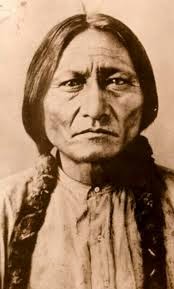His horse was fleet, and gained on the cow quickly. The dappled
white flanks heaved and strained beneath him, and his pony's neck was
stretched forward, pointing toward their prey as straight as any
arrow.
The selection above is from my book Plews. It is one of my favorite scenes in the entire book, even though it has little impact on the rest of the story. In this scene a Blackfoot man named Sleeping-Badger goes on a buffalo hunt. It sounds simple enough, but when I really started thinking about it, the whole idea became amazing. I imagined myself waking up long before the sun rose, leaving my warm buffalo robes and stepping outside my lodge. I imagined my moccasins crunching in the new snow as I went to catch my favorite horse. I imagined riding a long way through the darkness to reach the herd. I felt the horse heaving beneath me as I loped toward the herd. I listened to the sound of thousands of hooves thundering over the hard packed earth. I watched my arrow fly. I felt the fear when I realized that if I failed my family would suffer great want.
I think the section came out well because I imagined that I was Sleeping-Badger. The sights, the smells, and the thoughts that came to him were mine. This part of the writing process has become one of my favorites over time. I'm sure that I still have no idea what it was actually like to be a First Nations man during the 1820's, but I had fun imagining it.
It has been pointed out to me recently that the women in my stories lack depth. The word 'cardboard' has been mentioned. Granted the subject matter of my books leaves little room for women to appear at all, but the few who do seem flat even to me. This is a concern not only because I want all of my characters to have depth and meaning, but also because the two projects I am currently working on have women playing a major role. I wracked my brain for some time wondering what I could do to make my female characters more real, until I realized that thinking of them as characters was the problem.
With Sleeping-Badger (and others) I imagined that I was the character, but I had never done that with a female character. The idea is daunting, not only because I shy away at the thought of imagining myself as a woman, but because of the difficulty presented by the exercise. It was hard enough to imagine myself as a fur trapper in the early part of the nineteenth century. How much harder will it be to imagine being a Mexican woman who owns a gambling hall in Santa Fe circa 1836? Will I be able to do it, or will I stretch my imagination to the breaking point?
I guess we're about to find out.
ad










